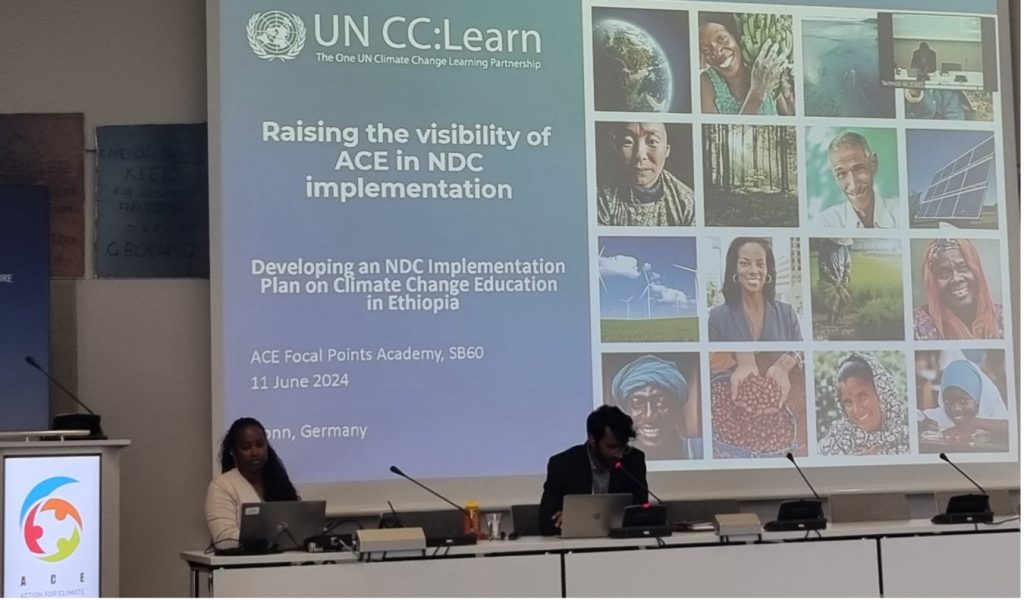The Dialogues on Action for Climate Empowerment (ACE) are a vital platform for countries and stakeholders to exchange knowledge, share experiences, and collaborate on implementing climate change education, training, and public awareness. Launched in 2013 after the adoption of the Doha work programme, these dialogues have been held annually to enhance international efforts to engage the public and build capacity in support of the Paris Agreement’s climate objectives. The dialogues reaffirm the importance of public participation, access to information, and international cooperation in addressing climate change effectively.
At COP 26, Parties adopted the Glasgow work programme, which extended the mandate of the ACE Dialogues and outlined four priority areas: policy coherence, coordinated action, tools and support, and monitoring and evaluation. The annual dialogues have since become a focal point for driving forward these priorities and ensuring that climate empowerment remains at the heart of international climate action. In 2024, the Bonn Climate Conference (SB60), organized by UN Climate Change (UNFCCC), provided a crucial forum for continuing these efforts.
During the 2024 ACE Dialogue at SB60, UN CC:Learn played a key role by facilitating discussions and sharing practical experiences. The dialogue sessions, held on June 8 and 10, highlighted challenges related to accessing the necessary tools and support for implementing ACE activities. Participants, including country representatives and climate experts, shared best practices, with UN CC:Learn presenting case studies of accessing tools and support for ACE in the Dominican Republic and Ethiopia. These exchanges showcased how countries are navigating the complexities of climate action, particularly in integrating climate education into national policies.
The ACE Focal Points Academy, which followed the main dialogue, offered a more hands-on opportunity for participants to dive deeper into the theme of tools and support for ACE implementation. UN CC:Learn’s presentation on Ethiopia’s NDC Implementation Plan for Climate Change Education was a key example of fostering joint action within governments and increasing political support for ACE. Additionally, the ACE Galleryat SB60 featured posters showcasing initiatives from Zambia, Ghana, and other countries, further demonstrating the diverse approaches worldwide to advance climate empowerment.
As climate action accelerates globally, the ACE Dialogues remain a cornerstone for empowering communities and fostering collaboration between nations. By enhancing public understanding, training youth, and promoting inclusive policies, the ACE community continues to strengthen the global response to the climate crisis. The Bonn Climate Conference exemplified how international partnerships and knowledge exchange are paving the way for a more empowered and climate-resilient future.
Finally, before the 2024 ACE Dialogues at SB60, a special Climate Classroom session co-organized by UN CC:Learn, Youth4Capacity, and Rio Impact focused on the synergies between the three Rio Conventions. This interactive 90-minute session highlighted the United Nations Framework Convention on Climate Change (UNFCCC), the United Nations Convention to Combat Desertification (CCD), and the Convention on Biological Diversity (CBD), emphasizing youth engagement across these agreements. The Climate Classroom allowed young participants to learn from lead experts and engage in group work, allowing them to explore the connections between the conventions and identify actionable strategies to address climate and environmental challenges.

